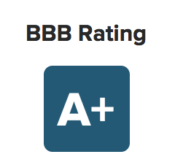Anytime your child is facing charges that bring the risk of incarceration it is vital that you retain an experienced lawyer. There are usually no mandatory minimum lengths of incarceration for juveniles. Therefore the imposition of incarceration is solely based on the specific circumstances and the expertise of the defense attorney. If your child was charged with a serious juvenile offense in the state of New Jersey and was under the age of 18 at the time of the occurrence, the Law Offices of John F. Marshall are available to assist your family through this difficult and wearisome time. Our lawyers, including a former New Jersey prosecutor, are prepared to defend your son or daughter throughout all phases of the charge including the trial of disposition which is held determine if incarceration is appropriate. Our firm is often successful at freeing our clients from the risks of incarceration by having the offense downgraded or the charge dropped altogether. We represent juveniles facing serious charges throughout the state including in Monmouth County, Middlesex County, Union County, Ocean County, Essex County, Somerset County, and Hudson County.
NJ Juvenile Detention
When the court sets a term of incarceration under § 2A:4A-43 because the juvenile was adjudicated delinquent they sentence them according to a grading system. The incarceration of the juvenile must be consistent with the goals of public safety, accountability and rehabilitation and the court has to be clearly convinced that the aggravating factors substantially outweigh the mitigating factors as set forth in 2A:4A-44. First time juvenile offenders whose offense is a fourth degree crime or less, such as a disorderly or petty disorderly persons, usually will not get incarcerated. However, certain severe fourth degree offenses such as aggravated assault, stalking, criminal sexual contact, bias intimidation, failure to control or report a dangerous fire, possession of a prohibited weapon or device, or unlawful possession of a weapon will not be exempt from incarceration even if it is the juvenile’s first offense. Furthermore, juveniles under the age of 11 are usually exempt from incarceration unless they were adjudicated delinquent for the crime of arson or a crime which, if committed by an adult, would be a crime of the first or second degree. Juveniles who are developmentally disabled are also exempt from incarceration.
Aggravating and Mitigating Factors
To determine the appropriate length of incarceration to impose on the juvenile, the court will weigh the factors in 2A:4A-44. If the aggravating factors outweigh the mitigating factors then the court will sentence the juvenile to detention facility for a term they deem appropriate.
Aggravating circumstances
- The act was committed in an especially heinous, cruel, or depraved manner
- Harm inflicted on vulnerable victim
- The juvenile is likely to commit another delinquent or criminal act
- The juvenile’s prior record
- The juvenile paid or was to be paid for the commission of the act
- Committed the act against a law enforcement officer or public servant
- The need for future juvenile determent
- The juvenile was an organizer, supervisor, or manager of an ongoing criminal business conspiracy with two or more persons.
- The impact of the offense on the victim(s)
- The impact of the offense on the community
- The threat to public safety
Mitigating Circumstances
- The child is under the age of 14
- The juvenile’s conduct neither caused nor threatened serious harm
- The juvenile did not contemplate conduct would cause serious harm
- The juvenile acted under a strong provocation
- Substantial grounds tending to excuse or justify the juvenile’s conduct
- The victim of the juvenile’s conduct induced or facilitated its commission
- The juvenile will compensate the victim for the damage or injury or will participate in a program of community service
- The juvenile has no prior history
- The juvenile’s conduct was the result of circumstances unlikely to recur
- The juvenile is unlikely to commit another delinquent or criminal act
- The juvenile is particularly likely to respond affirmatively to noncustodial treatment
- The separation of the juvenile from the juvenile’s family by incarceration of the juvenile would entail excessive hardship to the juvenile or the juvenile’s family
- The willingness of the juvenile to cooperate with law enforcement authorities
- The conduct of the juvenile was substantially influenced by a more mature person
Maximum Terms of Incarceration for Juveniles
When the court determines that, based on all the factors, the juvenile shall be incarcerated it will commit the juvenile to the custody of the Juvenile Justice Commission which shall provide for the juvenile’s placement in a suitable juvenile facility. The incarceration sentence imposed by the court cannot exceed the maximum terms set forth in 2A:4A-44(d)(1) and are as follows:
- Murder………………………………………………………………20 years
- Felony Murder……………………………………………………..10 years
- Crime of the first degree, except murder……………………….4 years
- Crime of the second degree……………………………………….3 years
- Crime of the third degree………………………………………….2 years
- Crime of the fourth degree…………………………………………1 year
- Disorderly persons offense…………………………………………6 months
* These sentences can be extended based on the motion of the prosecutor and depending on the juvenile’s prior record and the number of offenses they are facing.
Incarceration behind bars can traumatize a child for life and set them back during the crucial years of development. An experienced attorney who knows the juvenile laws can fight for your child to ensure that they are not separated from their family and friends and the life they have become accustomed to. No family wants to lose their child, especially when it can be avoided. The Law Offices of John F. Marshall have juvenile defense attorneys waiting to handle your case and give your family some peace of mind during this difficult time. Please do not hesitate to contact one of our law offices today for a free consultation with one of our defense lawyers. Our law firm is accessible throughout NJ and handles cases in Monmouth County, Middlesex County, Union County, Somerset County, Ocean County, Essex County, Ocean County, Mercer County, Hudson County, and Morris County.











